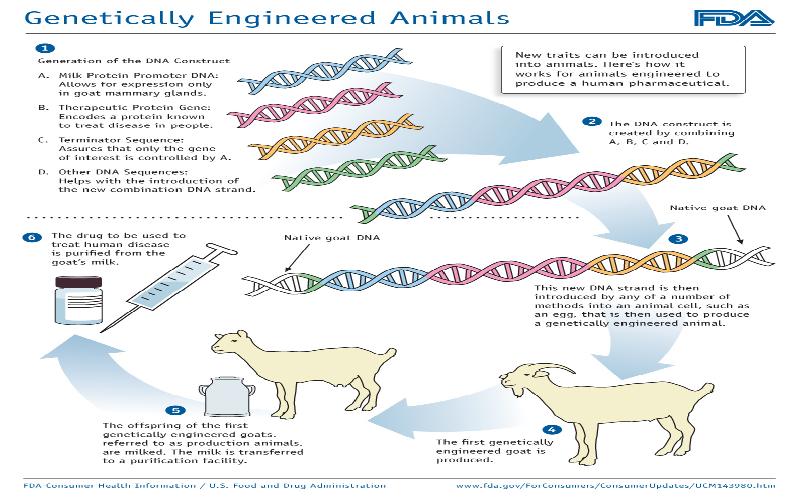As we break new barriers of genetic engineering, our progress also gives rise to concerns, raising insecurities about the unknown events that our quest for greater control of life can lead to. It is almost the danger that faces a man wishing to play God, for he knows little about the world that he aspires to control. Think about this… what would happen if mankind becomes capable of genetically engineering humans – a prospect that would change the world that we live in for all times to come. It will give rise to a world that we cannot even envisage
at this time.Imagine Genetically Engineered (in)Humans
Our world revolves around human beings. Imagine for a second that in addition to the humans we know, we had another category of 'inhumans' who are just a little different, but that difference is enough for them not to be perceived as humans. And now imagine what happens next. Will they live among us, or will they want to have their separate territories? Will they live peacefully with us, or will there be a struggle? Will they be better than us and take control of us and may be make us a secondary species on this planet? or will they be inferior to us and enslaved by some of our brethren?
We need to ask ourselves whether we really want ourselves to be thrown into dark uncertainties of our future. There is only one world, and we have adapted very well to it so far.
Thus, when we do not have adequate knowledge of the eventual outcomes of our action, it would be wise to practice restraint. At the very minimum, the test should be that of predictability – unless were are sure that the benefits of our endeavours will make us better off, we should prefer to be conservative in our approach.
The Dangers of Genetic Engineering: Unintended Consequences
Genetic engineering is not a double-edged sword. It is much worse. Even worse than the nuclear power, because while nuclear power can be deadly if it falls in wrong hands, a few honest errors of very ethical, careful and well meaning scientists can be as dreadful as it gets. Another problem with disasters from genetic experimentation, particularly that involving the human genome, is that it need not happen in one go. The human genome consists of millions of genes, the effects and complex interactions of most of which are largely unknown. A few mutations (genetic modifications) may never get noticed immediately, but when combined with further natural mutations,
prove extremely deadly.We Must Not Underestimate the Power of Genes
Those who know what a virus is, will know how dangerous is nucleic acid. Viruses are nothing but small pieces of nucleic acid (either DNA or RNA) coated around by a layer of protein. Outside the living tissue, it is like a dead granule or crystal, but once inside the body, the nucleic acid starts multiplying, and reproducing itself, thereby killing the cells and the tissue and causing most of infectious diseases existing in today's world. If a small piece of DNA or RNA can run amok and be so difficult to handle, creating problem genomes can lead to anything in the world.
Concerns Exist with regard to Non Human Genetic Engineering too
Genetic Engineering or the process of manipulating living beings has been going on since 1970s, when the first genetically modified bacteria were produced. It was our expertise in this field that has enables commercial production of insulin using biotechnology and genetic engineering. Genetic engineering has also produced genetically modified (GM) foods, which are considered today more productive than the usual crops. However, concerns do exist, and occupy the attention of scientists regarding unintended consequences of gene alteration of plants.
Since plant genomes can mutate as well as cross-pollinate with our similar species and sub-species, they can possibly lead to spread of genetic alteration to plant species to which they were not intended to apply. Such spread can lead to super-resistant weeds that can cause major havoc for human agriculture. Of course, till now, we have been successful in managing this risk, but we must recognize that the risk continues to exist, and take all precautions to keep it under control.
Preferable to be Conservative
If there is any one single area of scientific research and experimentation that calls for a relatively conservative approach, it is genetic engineering. Let us always remember that the nature has its own mechanism of protection and survival. Interfering with it is always somewhat risky, something that we are learning the hard way now with global warming and impending global and human disasters staring us in the face. It would be fatally stupid if we create another and perhaps even bigger catastrophe for the humanity!










